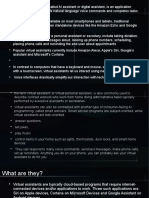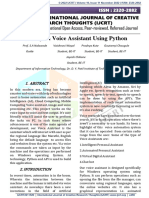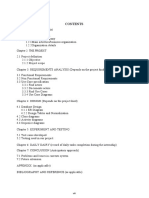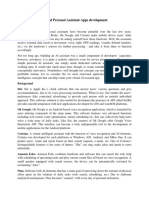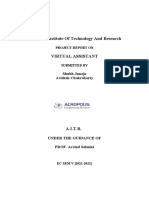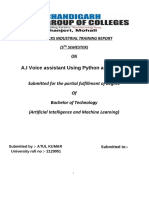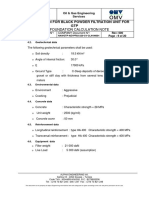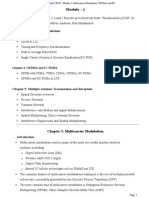0% found this document useful (0 votes)
106 views21 pagesIntelligent Virtual Assistant
This document discusses the AS101: Engineering Exploration course project on an intelligent virtual assistant named VIVA. It provides background on intelligent virtual assistants, including their components and history. Popular current intelligent virtual assistants like Google Assistant, Siri, Cortana and Alexa are described in terms of their capabilities and differences. The future of intelligent virtual assistants and concerns regarding privacy are also mentioned.
Uploaded by
Tarush MalhotraCopyright
© © All Rights Reserved
We take content rights seriously. If you suspect this is your content, claim it here.
Available Formats
Download as PPTX, PDF, TXT or read online on Scribd
0% found this document useful (0 votes)
106 views21 pagesIntelligent Virtual Assistant
This document discusses the AS101: Engineering Exploration course project on an intelligent virtual assistant named VIVA. It provides background on intelligent virtual assistants, including their components and history. Popular current intelligent virtual assistants like Google Assistant, Siri, Cortana and Alexa are described in terms of their capabilities and differences. The future of intelligent virtual assistants and concerns regarding privacy are also mentioned.
Uploaded by
Tarush MalhotraCopyright
© © All Rights Reserved
We take content rights seriously. If you suspect this is your content, claim it here.
Available Formats
Download as PPTX, PDF, TXT or read online on Scribd
/ 21




